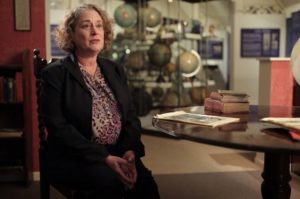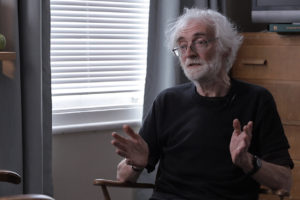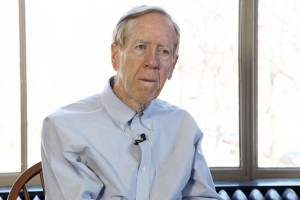Science Communication in Ancient Greece
Historian and Philosopher of Science Liba Taub on Aristotle, the cattle problem, and art as a means of science...
What methods do we have to reduce information to compress signals? What problems do applied and pure mathematicians face? What is special about being an applied mathematician? MIT Professor of Mathematics Gilbert Strang speaks on wavelet functions, their advantages and applications.
I think of a signal as just a sequence of numbers 0 and 1, sometimes just the numbers 01 that tell you what you’re hearing. If I was an audio engineer, I would have maybe a symphony, and that symphony gets broken up into little, short pieces of time. And in that piece of time symphony is the music, we’re hearing different certain notes. So it’s all that information that has to get on to the CD. The same would be true of television. A videocamera is taking a picture constantly in time, the picture itself is broken into tiny little pixels, and each pixel has a grade from light to dark, or three colors, in color television we have three colors to transmit. So there’s a lot of information.
Wavelets are overlapping. There’s one wavelet, and then a second wavelet is just shifted a little bit, and then again shifted a little bit, and again. These wavelet functions overlap each other, and you don’t see that artifact of a jump, of a break in the picture. The idea developed quite a lot in France, French engineers and mathematicians were at the beginning of wavelet theory, and now its worldwide. For mathematicians it’s amazing to see whole new ideas of whole new functions. We’re very familiar with classical functions of the last two centuries, and now here have appeared wavelet functions.
Applications can provide really good mathematical questions, and you have the pleasure of seeing the ideas actually used. Pure mathematicians (I’m partly pure, and partly applied) have the pleasure of choosing their own problem. Applied mathematicians have not the pleasure: they are given the problem, but then they have the pleasure of seeing the ideas put to use. My own work has become more and more applied as time passes.

Historian and Philosopher of Science Liba Taub on Aristotle, the cattle problem, and art as a means of science...

Mathematician Gareth Jones on Gödel's incompleteness theorem, the halting problem and why the subsets of the n...

Mathematician Gilbert Strang on the history of the finite element method, collaborative work of engineers and ...